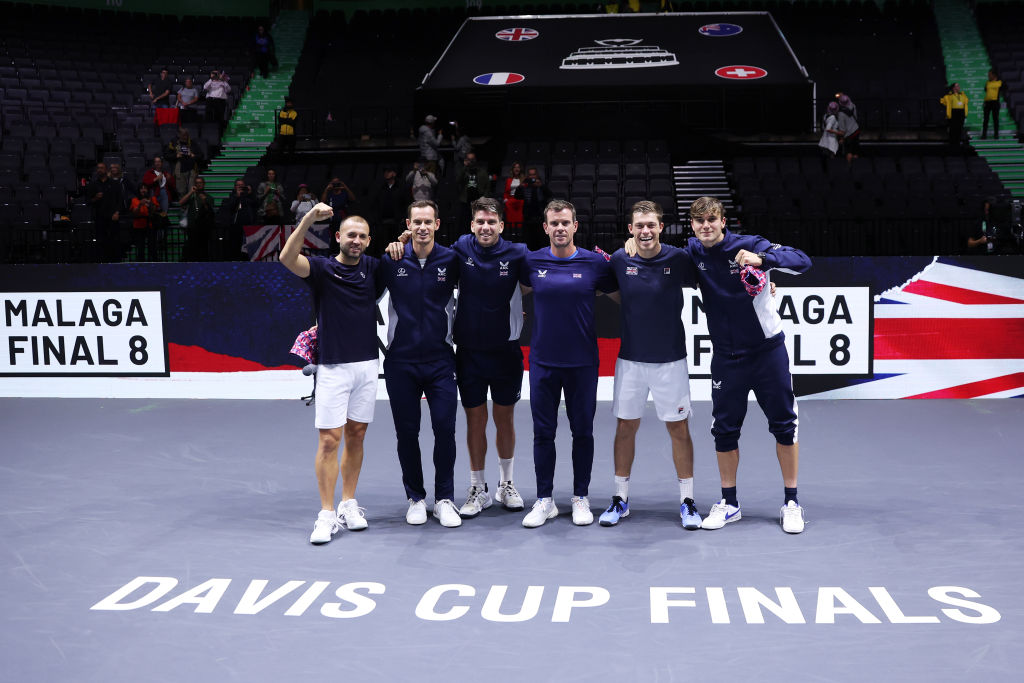International Tennis Federation faces ‘real danger’, warns presidential candidate

The German tennis chief running for the top job at Davis Cup organiser the International Tennis Federation has claimed the body faces a “real danger” of running out of money following the collapse of a lucrative deal for its flagship tournament.
The ITF budgeted to receive $51m of income this year from its Davis Cup licence agreement with investment group Kosmos but terminated the contract in January, just four years into a 25-year deal, after refusing to renegotiate the terms.
Its reserves were projected to be $38m in 2023, leading German tennis federation chief Dietloff von Arnim to question how it will be able to sustain itself. The ITF said any suggestions that it was at risk of financial difficulty were inaccurate.
“I think there is a real danger, we have to say that,” Von Arnim, who is challenging incumbent David Haggerty at the ITF’s presidential election this week in Mexico, told City A.M.
“At the end one can’t imagine that they would go bankrupt, but they have to save a lot of money, they have to save a lot of their spendings to the federations, it will probably have an impact on the prize money of the Davis Cup and Billie Jean King Cup and then on the player participation, the image of the two events. At the end, I would say it’s a threat for all federations.”
An ITF spokesperson told City A.M. that its finances were “in good shape and with a positive outlook”, and was “budgeting to increase our Net Assets in 2023, despite huge increases in distributions to National Associations and players in recent years”.
They added that it had contingencies in place following the end of the Davis Cup contract and had regained access to all commercial revenues from the competition, in which Great Britain reached the final stage on Sunday.
While Britain attracted a record crowd for their win over France, other matches at Manchester’s AO Arena were played in front of thousands of empty seats, leading Grand Slam winner Stan Wawrinka to complain on social media.

Von Arnim called the situation “sad” and said reinvigorating the ITF’s main source of income, which was subject to a major overhaul when the Kosmos deal began in 2019, was “one of the major issues that we need to solve in the short term”.
“We have to make a very wise decision. We won’t earn that amount of money again in one click,” he added. “We have to make the Davis Cup successful again from the sporting point of view and then I have no doubt that it will be attractive to sponsors and media. We should be really open to all alternatives on the table.”
Von Arnim also questioned the transparency of the ITF’s decision making around the Davis Cup and its women’s equivalent, the Billie Jean King Cup. This year it entered into a partnership to revamp the competition with a company led by Chelsea co-owner Mark Walter, several months after City A.M. first reported the plans.
“It is sometimes difficult how we come to the decisions at the ITF. There is a desire from some federations to be clearer, to be fairer and to be more transparent,” he said.
“The second issue is the Billie Jean King Cup, where at the moment we don’t get the information from the federation side either. How long is the contract with the new partner?”
In response, the ITF spokesperson said it had shared details of the Billie Jean King Cup with all of its members. They did not clarify the length of the contract.
Von Arnim on Saudi Arabia, a ‘LIV tennis’ and the ITF
One party keen to pour money into tennis is Saudi Arabia, which will host the ATP Tour’s Next Gen Finals for the next four years and has been linked with staging the WTA Finals. Rumours abound, meanwhile, that it could replicate its moves in golf in another solo sport.
“It would change the whole market if they played a LIV tennis. That’s the biggest threat for the whole tennis world at the moment,” said Von Arnim.
But he said he would be open to Saudi Arabian investment depending on what it entailed and called for the Grand Slams and two tennis tours to take a collective approach to deciding the future of the game, including a new calendar.
“First of all it is interesting and I would say good to see that people with money are interested in tennis. It’s a positive sign,” he said.
“For the players, it is interesting that there is new money on the table. It is not a bad sign because we know from the TV situations tennis is good. We know the revenue from the TV side has become much better but it can become even better than it is today.
“The whole calendar from the fragmented tennis world has to be revised and it should be a common decision how we deal with that and Saudi Arabia. At the end we have to say, ‘what do they want, how can we deal with that?’”
